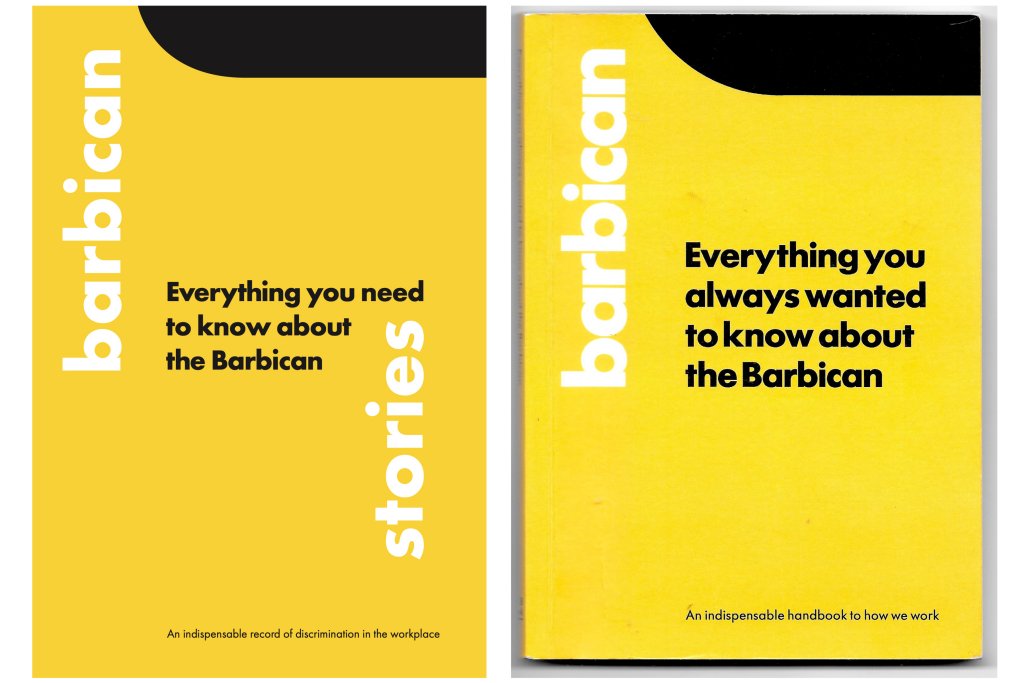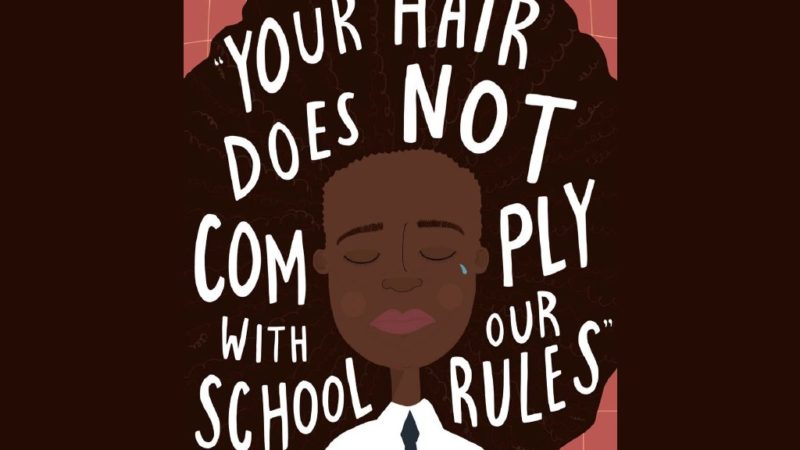Book gives first hand accounts of discrimination at the Barbican

'Barbican Stories', published on 10 June 2021 is a collection of first hand and witnessed accounts of racism and discrimination at the Barbican Centre in London. The book has been written anonymously by current and former Barbican employees from Global Ethnic Majorities. The making of the book was triggered by the Barbican Centre's inadequate response to the Black Lives Matter movement and protests of June 2020. In solidarity, the project is funded by white Barbican staff members and friends.
Barbican Stories is a vessel that ensures that experiences which have typically been suppressed, ignored and isolated from each other are written into history by the very people who have experienced it first hand. It is a testament, a radical archiving object, and a collective complaint. Barbican Stories presents a narrative of what has happened and continues to happen not just at the Barbican, but across the arts sector and in society. The book spotlights the gaslighting and institutional racism that has blown through the Barbican since they released their BLM statement in June 2020. A year on, not enough has changed.
The book’s publication coincides with the start of the Barbican’s new Director of Arts and Learning’s tenure, a silent protest marking the lost opportunity to hire a candidate for this position of power beyond the usual (or expected) demographic.
Barbican Stories is a 252 page book that contains the following:
- 2 x Forewords (one for readers who have experienced racism, and one for readers who have not experienced racism)
- ‘Welcome to the Barbican’ - an essay that looks at radical histories of the Barbican and it’s past industrial actions, from it’s construction in the 60s to union action in 2020
It also features nearly 100 testimonies of racism and discrimination at the Barbican Centre, highlighting the institutional racism that exists at the UK’s largest multi-arts centre. Incidents recorded span decades from past industrial actions during the Barbican’s construction in the 60s to current employee accounts during the tumult of the last year.
The cover design of Barbican Stories (left) is based on a pre-existing company sanctioned policy book (right) that was written collaboratively by Barbican staff in 2016 called 'Everything you always wanted to know about the Barbican' which contains anecdotes to help new employees navigate the workplace.
A statement from Barbican Stories:
“The Barbican’s working culture is inherently racist. It is insidious and incredibly obvious at the same time. The limited internal work that has been allowed to happen has been hard fought for and driven by the lower levels of the workforce. This work has either been ignored, side-lined or glossed over with anti-racism statements crafted in the interest of upholding white supremacy. This means prioritising the institution over its staff, audiences and artists and continuing to marginalize people for profit.
It is evident that the Barbican, alongside other institutions in the UK and beyond, take the accusation of racism far more seriously than the actual doing and upholding of it. In making this a matter of public interest, we are putting external pressure on the institution and effectively contributing to radical anti-racism work in the sector and beyond. These conversations cannot be controlled by institutions who are incapable of self-led criticism because they are run by people who don’t genuinely believe there is a problem.
We will get nowhere pretending that racism will be solved without radical change. This does not look like: Equality, Diversity and Inclusion training, ‘Listen and Learn’ sessions and other cosmetic corporate exercises that take place whilst the same people upholding racist systems are in power.
We could have also created books about sexism and gender discrimination, about ableism and about classism. We invite other organisations to make visible the cultures of discrimination that are perpetuated in their community. It is by bringing these concealed realities to the public sphere, that we can confront and dismantle systems of power together.”
Physical copies of Barbican Stories have been sent to the Barbican’s directors, heads of department and selected members of the board and are being made available to various archives and public records. For further information visit www.barbicanstories.com
External Review commissioned by the City of London Corporation
In a statement on its website, the Directors of the Barbican Centre said, "Since our last update and following the publication of staff experiences of racism at the Barbican, we’ve launched an EDI action plan in consultation with our colleagues. Back in May, we said we’d refresh our Equality and Inclusion (E&I) strategy and present this to our Board in July. However, in light of the very serious issues raised and published by colleagues, this piece of work has now evolved into the immediate action plan, approved by the Barbican Centre Board.
The new ten-point plan, currently being worked on by teams across the organisation, includes:
- Appointing our first Director of Equity, Diversity and Inclusion - Nina Bhagwat will join the Barbican’s senior leadership team from August as Interim Director of EDI to drive the Barbican's anti-racism work, and to ensure the Barbican’s inclusion agenda progresses quickly. Nina has a wealth of experience in diversity and inclusion roles throughout the creative sector.
- Setting and measuring inclusivity targets for ethnicity, gender and other protected characteristics at the Barbican for the first time. We also commit to annually publishing Barbican staff grading and pay by ethnicity, gender and other protected characteristics.
- A commitment to review our staff support structures, fully funding any and all improvements required to achieve industry best practice. Current support includes individual and group sessions specifically for Black and POC members of staff; free, confidential counselling sessions for all colleagues; and access to Dignity at Work Advisers, who operate outside of our formal complaint procedures. How to challenge non-inclusive behaviour training courses have been rolled out and we want to establish more robust policies and practices for reporting microaggressions and racism. We’re also working to better integrate our colleagues on casual contracts into the Barbican community.
- Launching a new Arts, Learning and Communities strategy that will change our existing structures and ways of working so that we can build a fairer, more agile, community-based Barbican.
In addition to our own EDI action plan, we fully welcome the City of London Corporation’s External Review into staff experiences of racism at the Barbican. The review has begun, is being led by leading equalities law specialist Lewis Silkin LLP, and will report to the City Corporation’s Barbican Centre Board in September.
For further information visit www.barbican.org.uk




